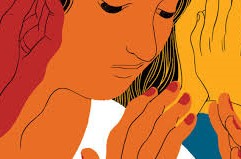
The Bugaboo of “Organized Religion”
I can’t tell you how often I’ve heard criticism of “organized religion” – that it tries to force its tenets down the throats of the rest of society, that it defends and promotes reactionary ideas, that it is a relic of a dark past that has no place in modern society.
I’m always tempted to ask whether the critics would prefer “unorganized religion,” and that if religion forces its tenets down other people’s throats, what do adherents of the Democratic and Republican parties and other secular organizations do? As for it being a relic, that may be critics’ wishful thinking.
Though religious affiliation has dropped in the U.S., it has increased in many parts of the world. According to the web site, World Population Review, “about 85% of the world’s people identify with a religion.” And according to an average of all 2021 Gallup polling, “about three in four Americans said they identify with a specific religious faith. By far the largest proportion, 69%, identify with a Christian religion.” So, even in the U.S., religion is alive and well.
Trendy to Attack Religion
But it has become trendy to attack religion, and that can be a barrier for people searching for God because religion is the obvious, and I think most effective, way to conduct the search for God.
I have become a regular reader of Tish Harrison Warren, an Episcopalian priest and columnist for the New York Times. She recently wrote a column based on an interview with Eboo Patel, an American Muslim and founder and president of Interfaith America, a Chicago-based nonprofit that aims to promote cooperation across religious lines.
Patel says that what worries him about religious discourse in America is negativity toward religion. When giving public presentations, he says, “Particularly in areas of America where people have higher levels of education, it is considered sophisticated and educated to know only the bad stuff about religion. Of course, that’s ironic because to know only the bad stuff is to not actually be educated. So that is discouraging.
“I’ll tell you what I find encouraging. Catholic sisters just keep doing what Catholic sisters do, which is taking care of poor people. There are 10,000 migrants in Chicago that leadership recently welcomed into the city. But they had not adequately prepared for where those people would sleep. Well, guess who’s taking care of them? Largely, Catholic Charities and other faith-based organizations.”
Largest Non-governmental Provider
In fact, the Catholic Church, of which I am a member, “is the largest non-government provider of health-care services in the world,” according to Wikipedia. “It has around 18,000 clinics, 16,000 homes for the elderly and those with special needs, and 5,500 hospitals, with 65 percent of them located in developing countries.” With Caritas, Catholic Relief Services and hundreds of other services from the church’s various branches, it serves the social-service needs of millions, if not billions, of people.
Of course, the Catholic Church is not alone. As Patel points out, our society relies on a variety of religious communities to take care of people, to do addiction counseling, job training, hunger and homeless work and refugee resettlement. And we don’t often hear that story.
“In any hospital at any hour,” he says, “there are people from very different religious identities – a Muslim surgeon with a Jewish anesthesiologist, with a Mormon nurse, with a Jehovah’s Witness social worker, with a Baptist who is sanitizing the room at a hospital started by a Catholic social order like the Dominicans or Jesuits, that is run by an agnostic who grew up Buddhist. And every single one of them before they walk into surgery is having their own kind of moment of prayer or reflection or connection with what they call God.”
Yes, some critics might say, but they do so mainly to proselytize, hoping to convert people to their cause.
They Never Ask
I volunteer at a Catholic Charities office in Colorado, mostly as a Spanish-language interpreter, and I’ve noticed that people who provide services there never ask a client’s religious affiliation, or if the person is religious at all. And I know that is the case of most, if not all, of the charitable organizations run by “organized religion.”
In the case of most people affiliated with Christian religions, at least, they do it because their faith compels them. They see helping others, especially the neediest, as the most reliable mark of their faith – that they feed the hungry, clothe the naked, and take in the stranger.
In my view, “organized religion,” and the religious diversity found in the U.S., is a great boon to society. And it can be an even greater personal boon to people searching for God.



